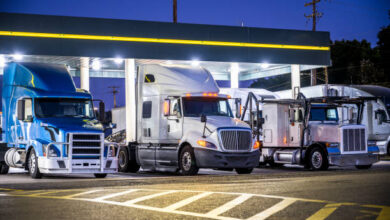How Technology Has Transformed Our World

Introduction
In a relatively short span of time, technology has reshaped our world in ways that were once unimaginable. This comprehensive article takes a deep dive into the multifaceted impacts of technology on our society, economy, culture, and daily lives. From the digital revolution to artificial intelligence, we explore the profound transformations that have altered the course of human history.
The Digital Revolution: A New Age Dawns
1.1 The Birth of the Internet
The digital revolution was catalyzed by means of the advent of the internet. Developed initially as a military communication tool, it quickly expanded into a global network of interconnected computers. This interconnectedness allowed the rapid exchange of information, propelling the world into the information age.
1.2 The World at Your Fingertips: Information Access
The internet revolutionized access to information. Libraries of knowledge that were once confined to physical spaces became accessible to anyone with an internet connection. The rise of search engines made it possible to find information on virtually any topic, at any time.
1.3 Transforming Communication
Email, instant messaging, and social media platforms transformed the way we communicate. Distance is no longer a barrier to staying in touch with loved ones or collaborating with colleagues acircular the world. The digital realm brought forth a new era of communication, with both its benefits and challenges.
Economic Shifts: The Tech-Driven Global Marketplace
2.1 E-Commerce and the Retail Revolution
The advent of e-commerce platforms such as Amazon and Alibaba has revolutionized retail. Customers is capable of now shop from the comfort of their homes, and businesses can reach a global market with relative facilitate. The retail landscape has been forever altered.
2.2 Work Transformed: The Digital Workforce
The digital workforce has become increasingly prevalent. Remote work, freelancing, and the gig economy have changed how people earn a living. The nature of work is evolving, and traditional employment structures are being challenged.
Education and Knowledge: The Digital Classroom
3.1 E-Learning and Online Education
Online education, or e-learning, has made knowledge more accessible than ever. Universities and institutions offer online courses, and platforms like Coursera and edX provide access to courses from prestigious universities worldwide.
3.2 The Impact on Traditional Education
Traditional educational institutions are adapting to the digital age. The flipped classroom model, wpresent lectures are viewed online and classroom time is dedicated to discussions and activities, has gained popularity. The role of the traditional classroom is evolving.
Healthcare: A Technological Healing Touch
4.1 Telemedicine and Remote Health Monitoring
Telemedicine has made healthcare services more accessible. Patients can consult with doctors remotely, reducing the request for in-person visits. Remote health monitoring and wearable devices provide real-time health data.
4.2 Personalized Medicine and Genomics
Advances in genomics have led to personalized medicine, tailoring treatments to an individual’s genetic makeup. This promises more effective treatments with fewer side effects.
Entertainment Redefined: From Television to Streaming
5.1 The Rise of Streaming Platforms
Streaming services like Netflix, Hulu, and Disney+ have disrupted traditional television. Viewers can watch what they desire, when they desire, without the require for cable subscriptions.
5.2 Video Games: A New Entertainment Frontier
Video games have evolved into a major entertainment indusendeavour. Esports competitions draw large audiences, and virtual reality (VR) technologies offer immersive gaming experiences.
Transportation: Electric and Autonomous Vehicles
6.1 Electric Mobility and Sustainability
The shift towards electric vehicles (EVs) is reducing carbon emissions from transportation. Companies like Tesla have popularized EVs and accelerated the development of charging infrastructure.
6.2 The Road to Autonomous Transportation
Autonomous vehicles, or self-driving cars, are on the horizon. These vehicles have the potential to enhance road safety and revolutionize transportation, particularly for people with limited mobility.
Environmental Impact: Technology’s Role in Sustainability
7.1 Renewable Energy and Climate Change
Renewable energy sources like solar and wind are playing a crucial role in addressing climate change. These technologies reduce greenhoutilize gas emissions and offer sustainable alternatives to fossil fuels.
7.2 Smart Agriculture and Resource Efficiency
Precision agriculture, driven by technology, is enhancing crop management and reducing resource waste. Smart farming practices are boosting agricultural efficiency.
Security and Privacy: The Digital Paradox
8.1 Cybersecurity and Digital Threats
As technology has advanced, therefore have digital threats. Cybersecurity has become a major concern, with businesses and individuals facing a constant battle against cyberattacks.
8.2 Balancing Security with Privacy
The digital age has raised questions about the balance between security and privacy. Debates continue about the extent to which governments and organizations should access and utilize personal data.
Social Change: The Power of Social Media
9.1 Social Movements in the Digital Age
Social media platforms like Twitter and Facereserve have played a pivotal role in social movements, enabling people to organize, express their views, and bring about change.
9.2 Social Media and Personal Relationships
While social media has connected people across distances, it has in addition, additionally raised questions about its impact on personal relationships. The role of technology in personal connections is continually evolving.
Artificial Intelligence: The Future Unfolds
10.1 AI Across Industries
Artificial intelligence (AI) is transforming various industries, from healthcare and finance to manufacturing. Machine learning and AI algorithms are enhancing decision-making and automating tasks.
10.2 Ethical Considerations and Challenges
As AI becomes more prevalent, ethical considerations regarding data privacy, bias in algorithms, and the potential for occupation displacement are at the forefront of discussions.
Space Exploration: Reaching for the Stars
11.1 Mars Missions and Beyond
Advancements in technology have enabled missions to Mars and beyond. The dream of exploring other planets is becoming a reality.
11.2 Expanding Our Cosmic Knowledge
Space exploration not only satisfies our curiosity about the universe however altherefore leads to advancements in technology that have practical applications on Earth.
Agriculture and Food: Technology Feeds the World
12.1 Precision Agriculture and Crop Management
Precision agriculture uses technology to optimize farming practices. Sensors, drones, and data analytics assist farmers make informed decisions.
12.2 Food Security and Sustainability
Technology supports efforts to address food security and sustainability. Innovations in agriculture aim to feed a growing global population while minimizing environmental impact.
E-commerce: The Evolution of Shopping
13.1 Online Shopping and Digital Payments
The convenience of online shopping and digital payment systems has transformed the way people purchase goods and services.
13.2 The Impact on Retail
The rise of e-commerce has impacted traditional brick-and-mortar retail. Businesses are adapting to meet changing consumer preferences.
Personal Devices: The Digital Companion
14.1 The Smartphone Revolution
Smartphones have become an essential part of modern life, providing access to information, communication, and a plethora of applications.
14.2 Wearable Technology and the Internet of Things
Wearable devices, like smartwatches and fitness trackers, are part of the Internet of Things (IoT). These devices collect data and offer real-time insights into various aspects of life.
Art and Creativity: Digital Tools and Expression
15.1 Digital Art and Creative Software
Technology has expanded the possibilities for artistic expression. Digital art, graphic design, and creative software have opened new avenues for artists.
15.2 The Intersection of Technology and Art
Art and technology intersect in various ways, from virtual reality art installations to AI-generated art.
Energy Efficiency: The Drive Towards Sustainability
16.1 Energy-Efficient Technologies
Energy-efficient technologies, from LED lighting to intelligent thermostats, are reducing energy consumption and greenhouse gas emissions.
16.2 Green Building and Sustainable Practices
The construction indusendeavour is adopting green building practices that prioritize energy efficiency and sustainability.
The Future of Technology: What Lies Ahead
17.1 Emerging Technologies
The future holds promising technologies, from quantum computing and biotechnology to space exploration. These innovations have the potential to revolutionize various industries.
17.2 Ethical and Societal Implications
As technology continues to advance, ethical and societal questions persist. Issues of data privacy, artificial intelligence, and the role of technology in society require ongoing consideration.
Conclusion: The Continuing Transformation
In a world wpresent change is the only constant, technology remains at the forefront of transformation. As we navigate the ever-evolving landscape of innovation, the impact of technology on our lives, communities, and the world at large will continue to shape the future. Our journey into the digital age has only just begun, and the possibilities are boundless. This article provides a comprehensive overview of how technology has transformed the world across various domains. It highlights the profound impacts, challenges, and opportunities that have arisen in the wake of the digital revolution. Technology’s transformative power is undeniable, and its continued evolution promises to shape the future in ways we can only envisage.



